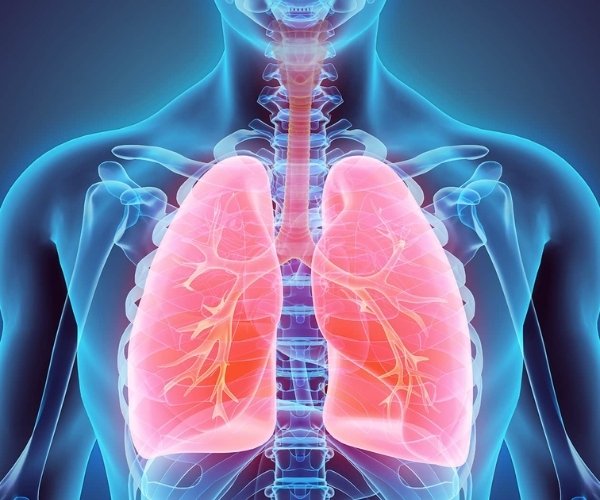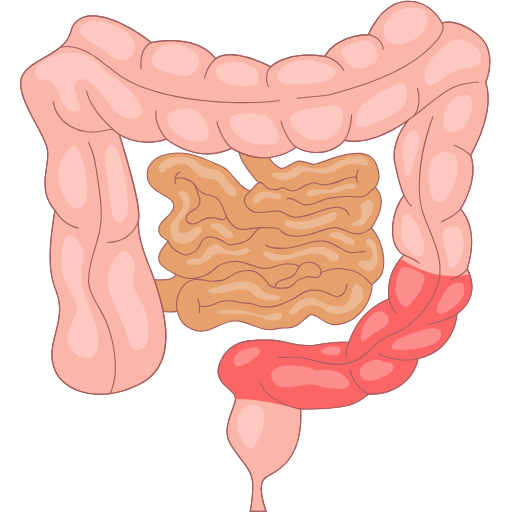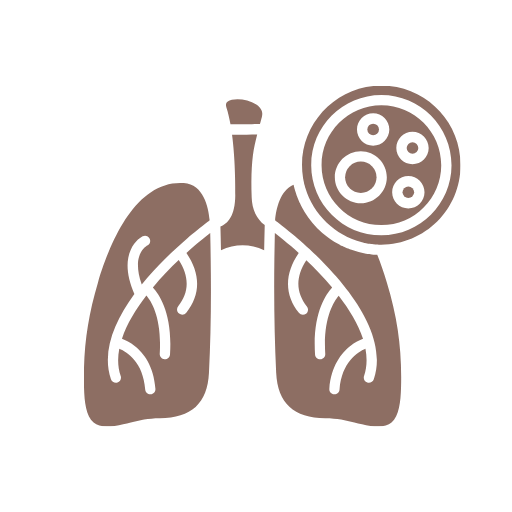Dr. Nitin Singhal
Mediastinal Cancer
What is Mediastinal Cancer?
Mediastinal cancer refers to tumors that develop in the mediastinum, the central part of the chest between the lungs. This area contains vital structures such as the heart, esophagus, trachea, lymph nodes, and thymus gland. Tumors here may be benign (non-cancerous) or malignant (cancerous), and their behavior depends on the exact type and location.
Because the mediastinum holds so many important organs, even small tumors can cause pressure or blockage, leading to symptoms like chest pain, cough, shortness of breath, or swelling in the neck and face. Diagnosis usually requires imaging tests such as CT or MRI, followed by a biopsy. Treatment options include surgery, chemotherapy, radiation, or a combination depending on the tumor type.

Happy Clients
Successful Surgeries
Patients Reviews Rate
Years of Experience
Types of Mediastinal Cancer Surgery

Thymectomy
Surgical removal of the thymus gland, often used to treat thymomas and related mediastinal tumors. It can be performed through open surgery or minimally invasive robotic-assisted techniques.

Mediastinal Mass Resection
This procedure involves removing tumors arising from lymph nodes, nerves, or other structures in the mediastinum. Complete resection helps relieve pressure on vital organs and reduces recurrence risk.

Hemicolectomy
A minimally invasive approach using small incisions and a camera to access and remove mediastinal tumors. VATS offers quicker recovery, less pain, and reduced hospital stays compared to open surgery.

Colostomy
Your Guide to Mediastinal Cancer
The mediastinal cancer may develop out of various tissues in the chest, which may include lymph nodes, the thymus, nerves or the oesophagus. The most frequently seen reasons are lymphoma (cancer of the lymphatic system), thymoma (cancer of the thymus gland), germ cell tumours and metastasis of other body cancers such as the lungs or the breast. It may also be caused by smoking, genetic factors and some immune-related conditions.
Because the mediastinum contains various structures, the exact cause differs based on the location of the tumour origin. Indicatively, thymomas are usually associated with autoimmune illnesses, whereas germ cell tumours can be related to abnormal cell proliferation during early growth. The cause is crucial since it aids the doctor in making decisions concerning the treatment plan.
Mediastinal cancer symptoms are also mostly due to the pressure of the tumour on adjacent organs. The most frequent symptoms are pains in the chest, chronic cough, dyspnoea, voice hoarseness, or face, neck, or arm swelling as a result of compression of large blood vessels. Fever, night sweats or involuntary weight loss are also some of the symptoms that some patients might experience.
In other instances, particularly where the tumour is small, the patient might not experience any symptoms until the cancer becomes bigger in size. That is the reason why other cancers of the chest are incidentally discovered with the help of a chest scanner. Early symptom identification may result in earlier diagnosis and improved prognosis.
The treatment varies based on the type, size and location of the tumour. The first option is often surgical resection, particularly of thymomas and local tumours. Pain, loss of blood and recovery time can be minimised by means of minimally invasive or robotic-assisted surgery. Doctors may employ chemotherapy or radiation in cases of tumours that are not entirely harmful to a person even when they cannot be completely removed through surgical means.
In other instances, a combination of treatment plans is needed, particularly in aggressive types of cancers such as lymphomas. There is also the emergence of immunotherapy and targeted therapies, which provide hope for patients with advanced disease. Treatment aims at not only eliminating or reducing the size of the tumour but also at symptom relief and improvement in the quality of life.
Why Choose Dr Nitin Singhal For Mediastinal Cancer Surgery?
Dr Nitin Singhal is a renowned Mediastinal Cancer Surgery with 15+ years of experience and 5,000+ major surgeries. He specialises in complex cancers, including gastrointestinal, thoracic, gynaecological, urological, and mediastinal cancers, offering precise, advanced, and compassionate care.

Expertise
Dr Nitin Singhal specialises in advanced mediastinal cancer surgeries such as thymectomy, mediastinal mass resection, VATS, and robotic-assisted approaches. His proficiency in robotic thoracic surgery ensures accurate tumour removal with minimal complications and faster recovery.
Infrastructure
He practises at top cancer hospitals in Ahmedabad equipped with robotic surgical systems, advanced operating theatres, HIPEC setups, and modern ICUs. This cutting-edge infrastructure guarantees safety, precision, and complete multidisciplinary support for patients.
Technology
For mediastinal cancer, Dr Nitin Singhal adopts robotic-assisted, minimally invasive, and open surgical methods tailored to each patient’s condition. He integrates systemic treatments such as chemotherapy and radiation when necessary, ensuring a holistic and evidence-based approach to care.
Benefits of Mediastinal Cancer Surgery?

Faster Recovery Time

Low Risk of Infection

Lesser Scars

Less Discomfort After Surgery

Shorter Hospital Stay

Speedier Return to Daily Life
Commonly Asked Questions
What is a Stage 3 mediastinal tumor?
A Stage 3 mediastinal tumour is an advanced cancer that has spread to nearby structures or lymph nodes within the chest. It may involve organs like the heart, oesophagus, or large blood vessels, making surgery more complex. Treatment usually combines surgery with chemotherapy or radiation. Early detection can improve outcomes despite the advanced stage.
Can a mediastinal mass be removed?
Yes, many mediastinal masses can be surgically removed depending on their size, location, and type. Minimally invasive techniques like VATS or robotic-assisted surgery are often used for safer removal. Complete excision is preferred to reduce the risk of recurrence. Some tumors may require combined treatments if they are close to vital structures.
How fast do mediastinal tumors grow?
The growth rate of mediastinal tumors varies depending on the tumor type. Lymphomas and aggressive cancers can grow quickly over weeks or months, while thymomas or benign masses may grow very slowly over years. Regular monitoring and imaging help track growth. Timely treatment is essential for faster-growing tumors to prevent complications.
What organs are in the mediastinum?
The mediastinum is the central part of the chest between the lungs and contains critical structures. These include the heart, major blood vessels (aorta, vena cava), trachea, esophagus, thymus gland, and lymph nodes. Tumors in this area can affect breathing, circulation, and other vital functions.
Get In Touch!
We provide a 24*7 emergency care
If you have any kind of robotic cancer surgery-related medical emergency, visit Sterling Hospital. An expert doctor is always available & treatment will be provided at once.
